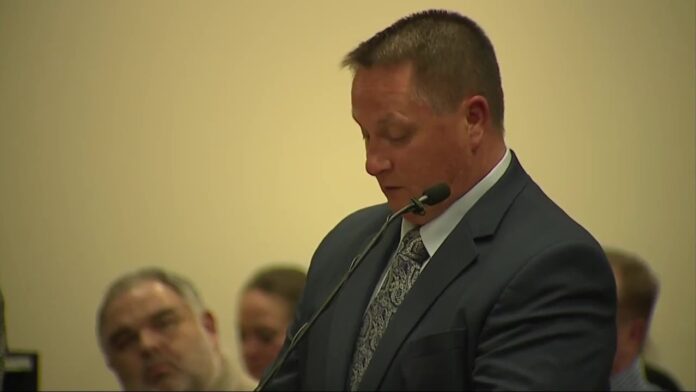Amid national outcry, a Colorado paramedic receives probation in the controversial death of Elijah McClain, sparking debates on legal and medical protocols
In a pivotal ruling on April 25, 2024, Jeremy Cooper, a former Colorado paramedic, received a sentence of probation for his role in the 2019 death of Elijah McClain, a decision that concluded nearly five years of legal proceedings and intense public scrutiny. The court handed down a four-year probation period with 14 months of work release to Cooper, avoiding prison time in a case that has highlighted racial tensions and called for systemic changes in public safety protocols.
Judge Mark Douglas Warner, presiding over the District Court in the 17th Judicial District, declared that while Cooper’s actions deviated from standard medical practices, there was no evidence suggesting an intentional overdose. “It’s almost unthinkable the way things rolled out,” Judge Warner noted, emphasizing the tragedy of the situation.
The case against Cooper and his colleague Peter Cichuniec, who received a five-year prison sentence last month, stemmed from their roles in the administration of ketamine to McClain during a police intervention. The encounter, which began with a report of a “sketchy” individual, ended tragically with McClain’s death after being subdued and injected with the sedative.
Elijah McClain’s encounter with law enforcement and emergency services on that fateful August evening in 2019 rapidly escalated, leading to his untimely death days later. The initial police stop, described by Aurora’s police as routine, took a fatal turn when McClain was forcibly restrained and injected with ketamine, a powerful sedative, without prior medical assessment.
During the sentencing, emotions ran high as Cooper addressed the courtroom, expressing his regret and sorrow directly to McClain, pledging to dedicate his life to understanding and learning from the fatal incident. In stark contrast, Sheneen McClain, Elijah’s mother, accompanied by activists, walked out during Cooper’s address, later criticizing the sentence as insufficient for what she views as complicity in her son’s death.
The broader implications of McClain’s case have been profound, catalyzing legislative reforms and intense public discourse on the use of force and the role of medical professionals in police operations. Colorado’s Attorney General, Phil Weiser, reflected on the need for systemic changes, noting that true justice would involve McClain still being alive.
Despite the legal outcomes, community activists like Hashim Coates expressed disappointment, viewing the probation sentence as a continuation of systemic failures. “The American legal system has shown itself to be broken,” Coates stated, underscoring the need for deeper reforms.
The tragic events have left an indelible mark on Aurora, shaping public safety measures and police protocols. In response to the outcry, Aurora introduced significant policy changes, including a ban on chokeholds and tighter controls on sedative use, aiming to rebuild trust and enhance the safety of both the community and first responders.
